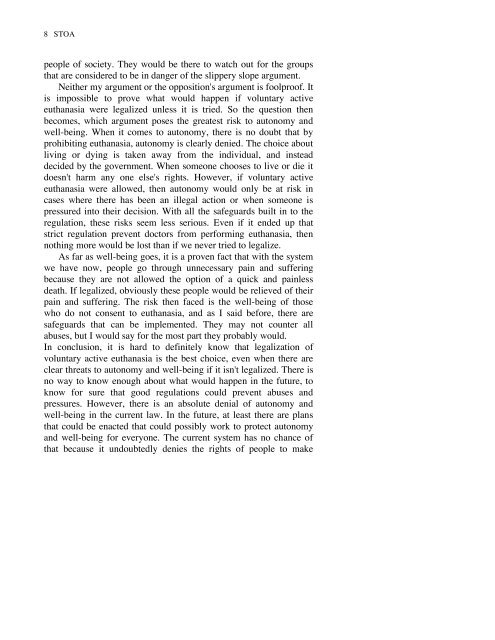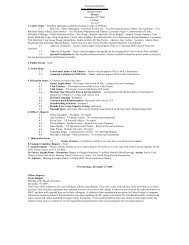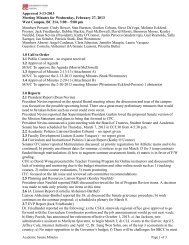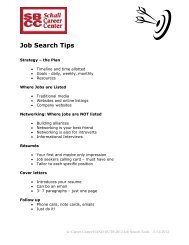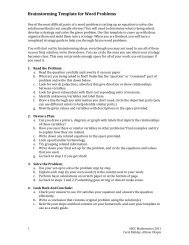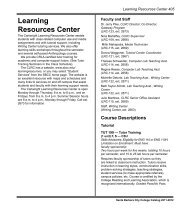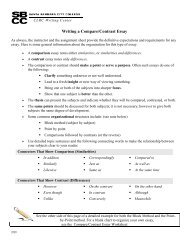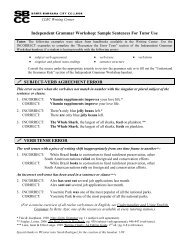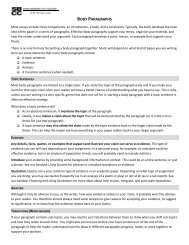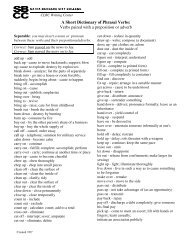Euthanasia Shanda Hastings West Virginia University
Euthanasia Shanda Hastings West Virginia University
Euthanasia Shanda Hastings West Virginia University
Create successful ePaper yourself
Turn your PDF publications into a flip-book with our unique Google optimized e-Paper software.
8 STOA<br />
people of society. They would be there to watch out for the groups<br />
that are considered to be in danger of the slippery slope argument.<br />
Neither my argument or the opposition's argument is foolproof. It<br />
is impossible to prove what would happen if voluntary active<br />
euthanasia were legalized unless it is tried. So the question then<br />
becomes, which argument poses the greatest risk to autonomy and<br />
well-being. When it comes to autonomy, there is no doubt that by<br />
prohibiting euthanasia, autonomy is clearly denied. The choice about<br />
living or dying is taken away from the individual, and instead<br />
decided by the government. When someone chooses to live or die it<br />
doesn't harm any one else's rights. However, if voluntary active<br />
euthanasia were allowed, then autonomy would only be at risk in<br />
cases where there has been an illegal action or when someone is<br />
pressured into their decision. With all the safeguards built in to the<br />
regulation, these risks seem less serious. Even if it ended up that<br />
strict regulation prevent doctors from performing euthanasia, then<br />
nothing more would be lost than if we never tried to legalize.<br />
As far as well-being goes, it is a proven fact that with the system<br />
we have now, people go through unnecessary pain and suffering<br />
because they are not allowed the option of a quick and painless<br />
death. If legalized, obviously these people would be relieved of their<br />
pain and suffering. The risk then faced is the well-being of those<br />
who do not consent to euthanasia, and as I said before, there are<br />
safeguards that can be implemented. They may not counter all<br />
abuses, but I would say for the most part they probably would.<br />
In conclusion, it is hard to definitely know that legalization of<br />
voluntary active euthanasia is the best choice, even when there are<br />
clear threats to autonomy and well-being if it isn't legalized. There is<br />
no way to know enough about what would happen in the future, to<br />
know for sure that good regulations could prevent abuses and<br />
pressures. However, there is an absolute denial of autonomy and<br />
well-being in the current law. In the future, at least there are plans<br />
that could be enacted that could possibly work to protect autonomy<br />
and well-being for everyone. The current system has no chance of<br />
that because it undoubtedly denies the rights of people to make


